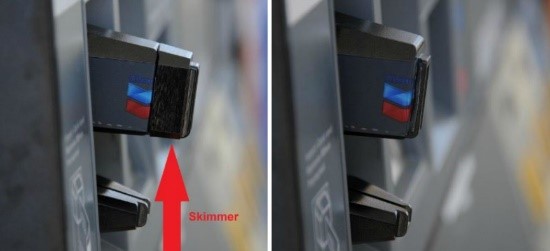It's summer, the kids are out of school, and vacations are right around the corner!! Folks are flying to sunny beaches, taking road trips, and going on cruises, but phishers, scammers, and malware peddlers are in full force, ready to take advantage of the season. They are banking on you being more relaxed and not paying close attention to providing your personal information.

Signs of Travel Scams
- Scammers say it's a “free” vacation that you have to pay for. Scammers often try to get your attention by saying you won something, but then making you pay to get it. If you have to pay, it’s not really free and all those fees and taxes can add up to hundreds of dollars. If it sounds too good to be true, then it probably is.
- Scammers pressure you to make a quick decision about a vacation package or rental. If someone says you have to decide whether to buy a travel package or rent a vacation property right away, don’t do it. Scammers want to rush you. So move on and find another option.
- Scammers don't give specific details about the travel offer. The offer says you’ll stay at a “five-star” resort or go on a “luxury” cruise ship. If the organizer can’t or won’t give you more specific details, like the address of the hotel or the cruise company's name, walk away.
- The travel-themed phishing lures include keywords related to summer vacation and well-known airline companies including Delta, American Airlines, United Airlines, and Alaska Airlines among others are used to deliver giveaway survey scams.

- Scammers say the only way to pay for your vacation rental is by wire transfer, gift card, or cryptocurrency. This is how they ask you to pay because once they’ve collected the money, it’s almost impossible to get it back. This is a scam, every time.
- Taxi Scams. The taxi driver may take a much longer, often circuitous route to get to your destination in order to maximize the cost of your fare. If you suspect you are being led astray, ask for them to take the more direct route, then get a receipt and take a picture of the driver’s ID card so you can follow up with your credit card company.
- Ticket Scams. People will often try to sell tickets to attractions, concerts, day adventures, and more outside of venues. They will claim the tickets are discounted or offer them as a way to bypass any line. However, these tickets can be fake or expired when you try and use them. Also as technology has improved, the tickets can look almost identical to the real thing. The best way to avoid this is to ALWAYS purchase the tickets from an official ticket booth, the official website, or work with your hotel concierge to secure admission.
- Credit-Card Skimming Scams. No matter where you go, a scammer could use a card skimmer to steal your credit card information. A skimmer can be attached to an ATM or gas pump. When you are using your card at an ATM or at the pump, pay attention to the card reader. Does it stick out farther than normal or is the card reader loose? The best thing you can do is monitor your accounts for suspicious activity and make sure you keep your wallet in a secure place.

- Fake Front Desk Calls. You may receive a late night phone call from someone impersonating the front desk. The scammer asks for credit card information claiming there’s a problem with the credit card on file. They may say it was declined, they need to re-verify payment information. The scammer will offer to take your credit card information over the phone, so that you’re not inconvenienced. However, a real hotel staff member will never ask for your credit card information over the phone at odd hours of the night. They will always ask to settle up any charges at the front desk.

- Free Wi-Fi Connections. When staying at a hotel, free internet access is often touted as a benefit of being a guest. However, this provides scammers an in. This usually appears in the common areas of the hotel. The connection is free to access, but IT IS NOT SAFE. Before joining a network, make sure the Wi-Fi connection requires a two-step verification process. You can also consider using your cellphone provider network and use your phone as a hotspot.
Ways To Avoid Travel Scams & Travel Smarter

- Get recommendations from trusted sources. Talk to family and friends or other trusted sources about good travel agencies, vacation rentals, hotels, and travel packages.
- Do some research. Look up travel companies, hotels, rentals, and agents with the words “scam,” “review,” or “complaint.” See what others say about them before you commit. Also, check that the address of the property really exists. If the property is located in a resort, call the front desk, and confirm their location and other details on the contract.
- Don’t sign or pay until you know the terms of the deal. Get a copy of the cancellation and refund policies before you pay. If you can’t get those details, walk away. Say “no thanks” to anyone who tries to rush you without giving you time to consider the offer.
- Check that charter flights are listed on the approved public charter flights of the U.S. Department of Transportation before you pay. Also, check out the charter’s operator with local travel agents to see if they know if the operator is legitimate, or contact the American Society of Travel Advisors.

- Ask about mandatory hotel “resort fees” and taxes. You can’t compare rates for different hotels unless you know about all the fees. If you’re not sure whether a hotel’s website is showing you the totalprice, call the hotel and ask about a “resort fee” or any other mandatory charge. Also ask about taxes, which may be significant in many places.
Knowing the kinds of scams that exist can help you protect your personal data, and you will be able to enjoy your vacation much more!
If you think you may have been targeted by a travel scam, report it to:
- The FTC at ReportFraud.ftc.gov
- Your state attorney general
- Report it to BBB Scam Tracker at BBB.org/scamtracker
In closing, if you would like general information about HIPAA, click to view the HIPAA page. Here you can find all the HIPAA policies or to report a suspected privacy concern.
